Is the founder-influencer dead?
The rise, downfall, and way-forward for the founder-influencers
I went to school with the co-founders of 437 - a successful DTC brand in the swimwear & activewear space. Now, Kingston, Ontario, where we went to university, was not at all a fashion-founder-mecca like here in New York City. It definitely wasn’t cool to be an influencer in 2017 and it wasn’t that common to start your own apparel brand out of our business school. I adjacently knew one of the co-founders, Hyla, and followed both her personal and the 437 social accounts when they launched. At that time, neither co-founder was really posting about the behind-the-scenes of building or acting as the face of 437. In the aesthetic and curated Instagram world of 2017-2020ish, this candid founder-influencer we all know today, didn’t really exist. The only founders at this time who were posting content related to their brand endeavors were some of the OG influencers-turned-founders, who capitalized on the early wave of creating brands to sell to their existing audiences, à la Marianna Hewitt of Summer Fridays.
Fast-forward to 2020 and the rise of TikTok gave way to a channel praised as authentic relative to Instagram — curation wasn’t a concept and creators were posting candidly in a way that felt like you were talking to a friend over FaceTime. As paid ads became wayyy more expensive on Instagram and Facebook, TikTok offered an organic-growth platform to reach mass audiences. Founders took themselves to social media in order to drive organic growth by building a loyal cult community of followers, giving their audience a peek behind the curtain into the person behind the product and creating a personality for their brand that extended beyond aesthetic product shots or editorial videos. Thus, what I believe catapulted us into the explosion of the founder-influencer.
When we talk about founder-influencers, there are two main types:
The influencers-turned-founders. Brand owners who had a following prior to launching a brand. Like Arielle Charnas of Something Navy, Marianna Hewitt of Summer Fridays, Danielle Bernstein of WeWoreWhat, Allegra Shaw of Uncle Studios;
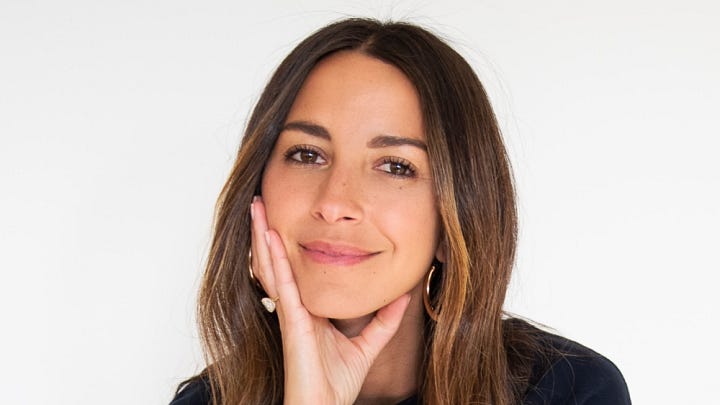
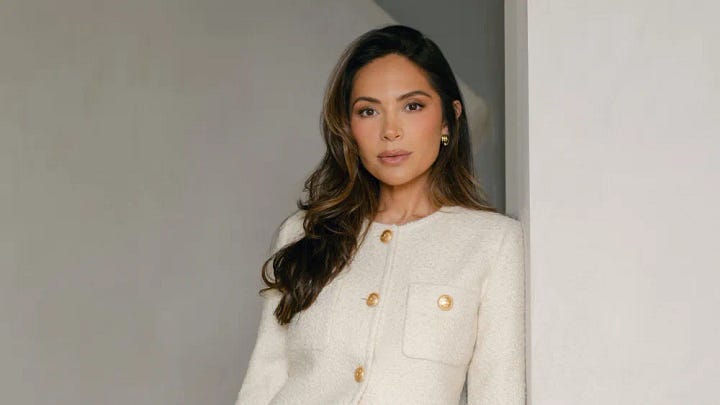
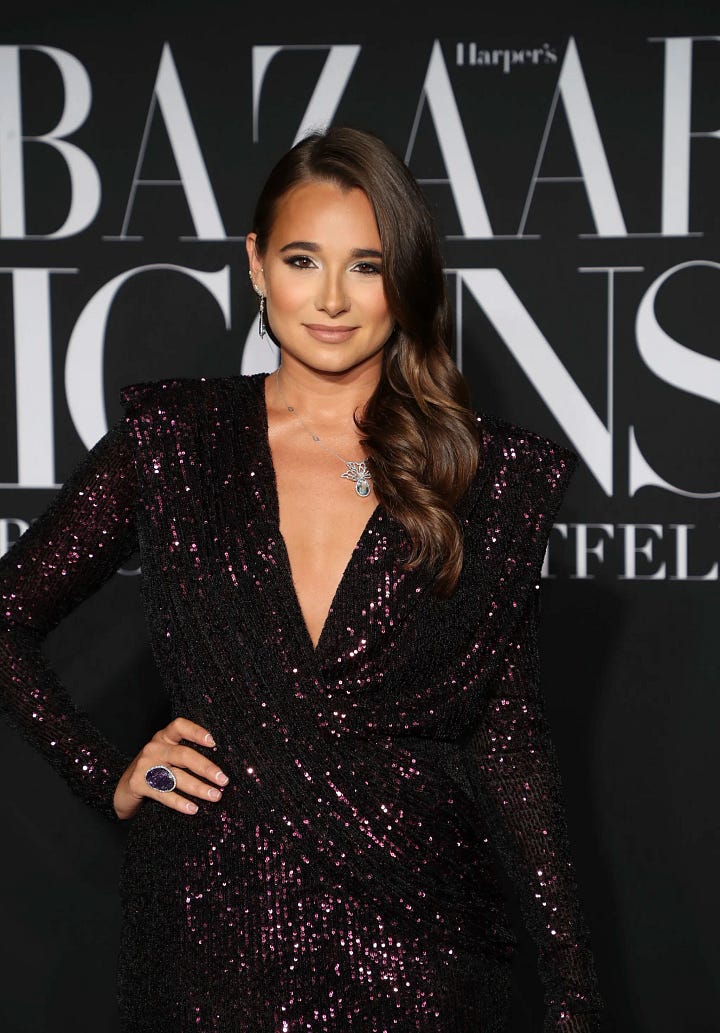
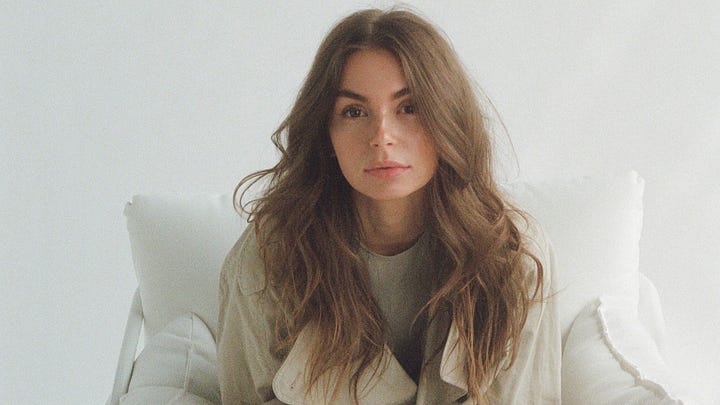
Founders-turned-influencers. Brand owners who grew their followings simultaneously to that of their brands. Think Georgia Costello of Strawberry Milk Mob, Aimee Smale of Odd Muse, Lindsey Carter of Set Active

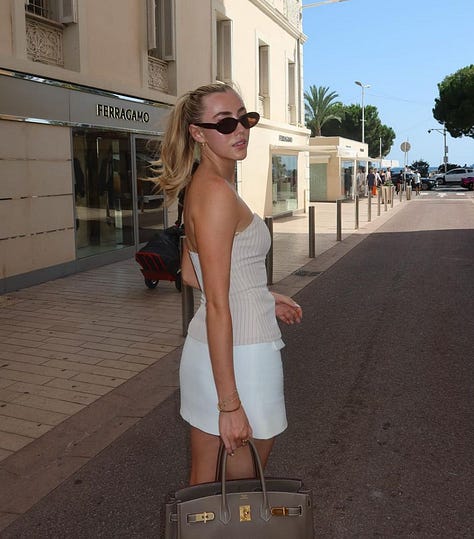
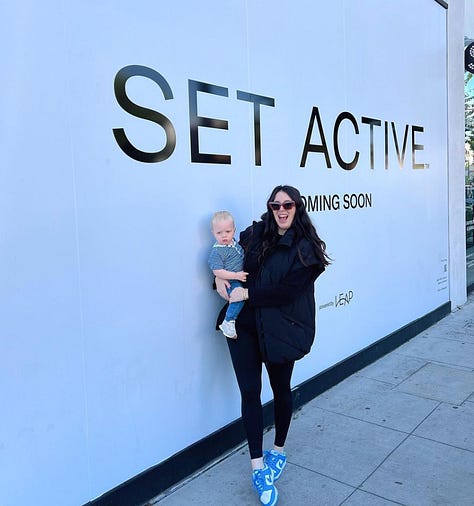
When the founders-turned-influencer cohort first started to hit the market, especially through TikTok around 2021, I found it refreshing. I loved getting to feel connected to the people building these companies and rooting for their success. In a market that was getting increasingly crowded, it was a smart move for these founders to stand-out and build brand recall amongst the noise of ads being fed to you left-right-and-center.
The influencers-turned-founder cohort, however, I think really had their moment pre-2020. During that period there were fewer, bigger influencers, who grew their brands when the market was more ripe for customer acquisition, and before the mass of influencers rushing to start their own DTC brand really took shape.
Today, I’m sure you’ve rolled your eyes when scrolling Instagram seeing another influencer starting their own swimwear / apparel / makeup brand. Because, seriously, why do we need another influencer brand? I recently came across an influencer (whose content I do enjoy) announcing the re-launch of their make-up line. In one post for the upcoming launch, she claims to have not shared her make-up routine for some time. My initial reaction was that this felt like a money grab. There was very little connection between the products being launched with the content the influencer shares. If the content you are sharing with your community has very little to do with your brand, why are you building a product for it? Why should consumers buy this influencer’s liquid blush over Rare Beauty? or Merit? or Nudestix? All brands that already cater to a minimalist, fresh-faced make-up appearance. This influencer’s attempt feels like a reach to get people to consume more, for the sake of it.
Over the past 3-4 years there has proliferation of DTC brands, as access to finding a manufacturing and building products has become increasingly easier, thanks to companies like Pietra Studios who provide a platform for truly anyone to start a brand. As with any industry, if you’re the one of the first-movers, it’s easier to stand-out, but it gets harder to position yourself as unique and differentiated, when every other person is posting about the behind-the-scenes of their latest brand.
So, is the notion of the founder-influencer dead? Not completely. However, today’s consumers see past any type of founder-influencer who is launching a brand, for the sake of launching a brand. Which brings us to the importance of founder-product-market-fit. If you’re wondering what this business jargon is we’re talking about here, let me break it down.
Founder-product-market-fit is when the founder has a specific skill set or experience that allows them to create a unique product, which will resonate with a demographic of consumers, that is large enough to sell to.
Let’s dive into once successful, and one unsuccessful, influencer-turned-founder FPMF examples.
Valeria by Valeria Lipovetsky
Valeria Lipovetsky has a large following (2.3M IG followers), and her content spans fashion, beauty, self-love, and family life. She launched a namesake affordable accessories-turned-ready-to-wear brand in the early 2020s. Now, why was someone who consistently posted in her designer clothes and luxury handbags trying to create an affordable apparel brand? While fashion was, and still is, a core pillar of her content, there was a clear disconnect between the brand’s values and how she showed-up day-to-day.
The concept of styling outfits, which according to this glossy article, was cited as one of the unique factors she wanted to bring to her brand, probably could’ve been done more successfully via a partnership with a larger clothing brand or retailer. Valeria could have designed a collection of 8-10 pieces with guidance on how to style the looks. There was not a clear fit between Valeria and an affordable, RTW clothing, so it’s not surprising to me that her namesake label was a short-lived venture (the brand shut down in 2023).
Gisou Hair by Negin Mirsalehi
Negin Mirsalehi (7.2M IG followers) was known from her content for two things: her hair and her family’s history as beekeepers. She talked frequently to her followers about both, so when she launched Gisou in 2015 with a honey-infused oil as the hero product it just made sense - i.e., there was a very clear founder-product-fit. Negin and her hairdresser mother had been experimenting with and using honey-infused masks for years, they bottled that up to sell to her rapidly growing audience who were already invested in her haircare routine. Gisou is one of the fastest accelerating haircare brands, and the company is expected to do $50M+ in revenue this year.
I nerd-out when it comes to the DTC brand space, and realized post text chain with my friends that as a result, I follow an outsized number of founder-influencers (though everyone did this, but turns out that is not the case), so here’s a few of my current favorites to keep tabs on:
Aimee Smale - Aime Smale is founder of OddMuse. Aimee’s entire social feed lives and breathes OddMuse, which I’d normally find feels like a walking advertisement, but in Aimee’s case she plays it off as a girl who is building and just taking you along for the journey. She’s got everyone hooked on her success story and humble beginnings in a way that has you rooting for her like the protagonist in a movie.
Georgia Costello - The internet has been talking about Strawberry Milk Mob for quite some time, and for good reason. ICYMI, Georgia Costello sells bikinis under her namesake label Strawberry Milk Mob. You wouldn’t actually know she sells bikinis from most of her content, it just comes across as a twenty-something making entertaining videos for her followers. As a result, her content makes you feel like you’re hooked into a reality TV show a la Alix Earle, with a cast of rotating characters she features, including her sisters and boyfriend. Georgia’s community is obsessed with her and that cult-following keeps bringing her audience back for more.
Lindsey Carter - Lindsey, unlike Aimee and Georgie, comes across less as the face of her brand, Set Active. Her IG feed content is very casual and authentic to her day-to-day. Her stories, and more recently, substack, is where she gives you a peek into the business side of the brand, along with snippets of what the journey has been like for her as a founder. I love that she plays her instagram like you’re just one of her close friends.
Allegra Shaw - Oftentimes when influencers create their own clothing brands, I’m always questioning whether or not they’d actually even wear the clothes. But Allegra Shaw has done something special with Uncle Studios, and I think it’s on the up. I appreciate that her clothing brand feels related, yet distinct from her personal brand. She weaves her Uncle Studios pieces seamlessly into the content she shares, without feeling like she is shoving her brand down your throat and pushing you to buy. I also enjoy the behind-the-scenes snippets she gives of herself and business partner, Shirin Soltani, building this thing together.
As consumers continue to be more price conscious, and dupe culture continues to explode, a good product alone, isn’t always going to cut it. I do believe the connectivity beyond an “aesthetic brand” that a founder-turned-influencer or influencer-turned-founder can bring to the table will continue to provide value, and growth, to these brands, if paired with a narrative authentic to the founder. As a consumer, this shifts your mindset beyond just buying a product. You’re buying into their stories and community. But this formula only works if that founder-product-market-fit is there.
I’ve already been talking my friends’ ears-off for a week about all the founder-influencers we like and whose brands we think are on the up or out, but send me a DM or leave a comment below – I’d love to hear your take xx.







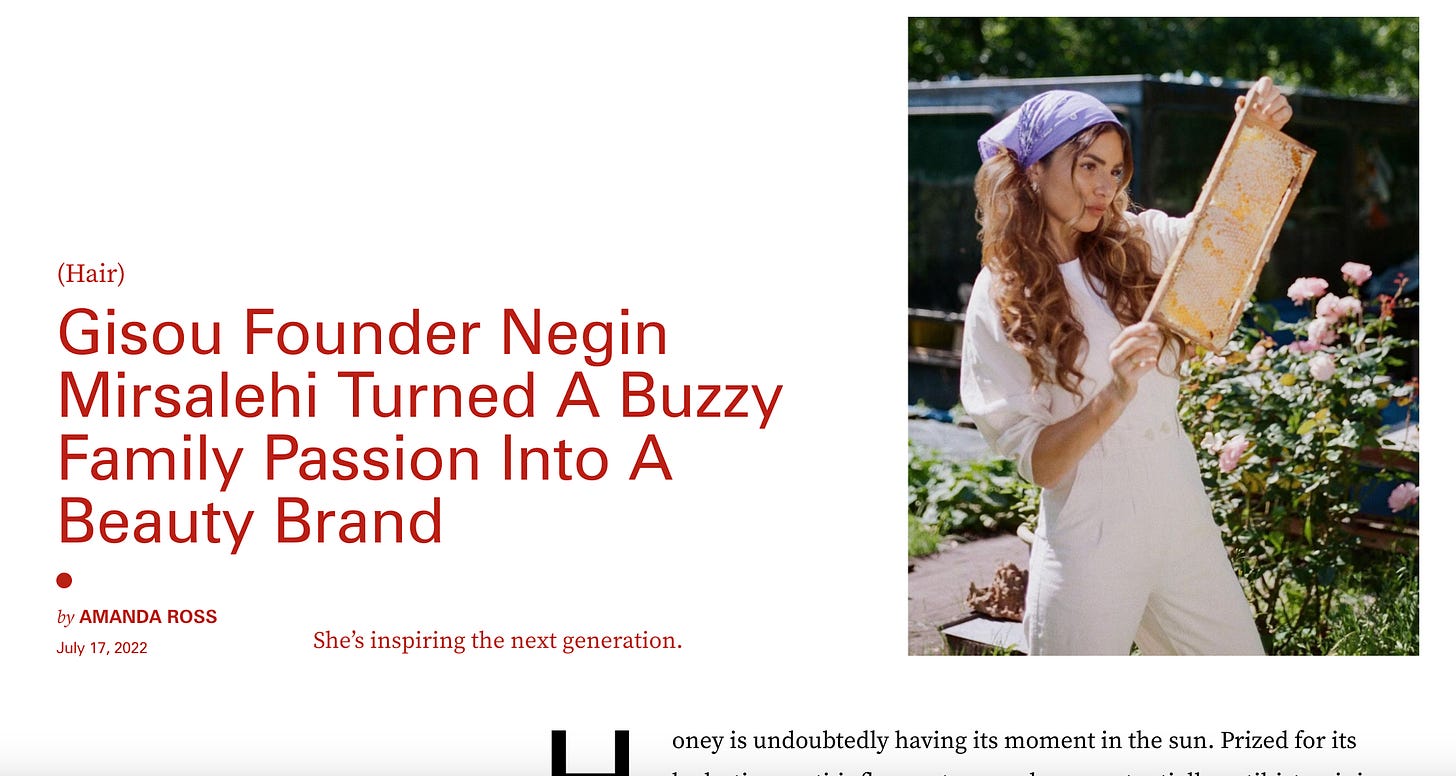

Am I falling down a rabbit hole of your content? Yes and this one was GOOD. I agree that the influencer -> founder feels outdated. Alix Earle get out of here with your energy drink but you go get that bag with Carl's Jr. I cackled at your take on Valeria. However I have the softest spot for my founders -> influencers! Allegra Shaw is my bebe!